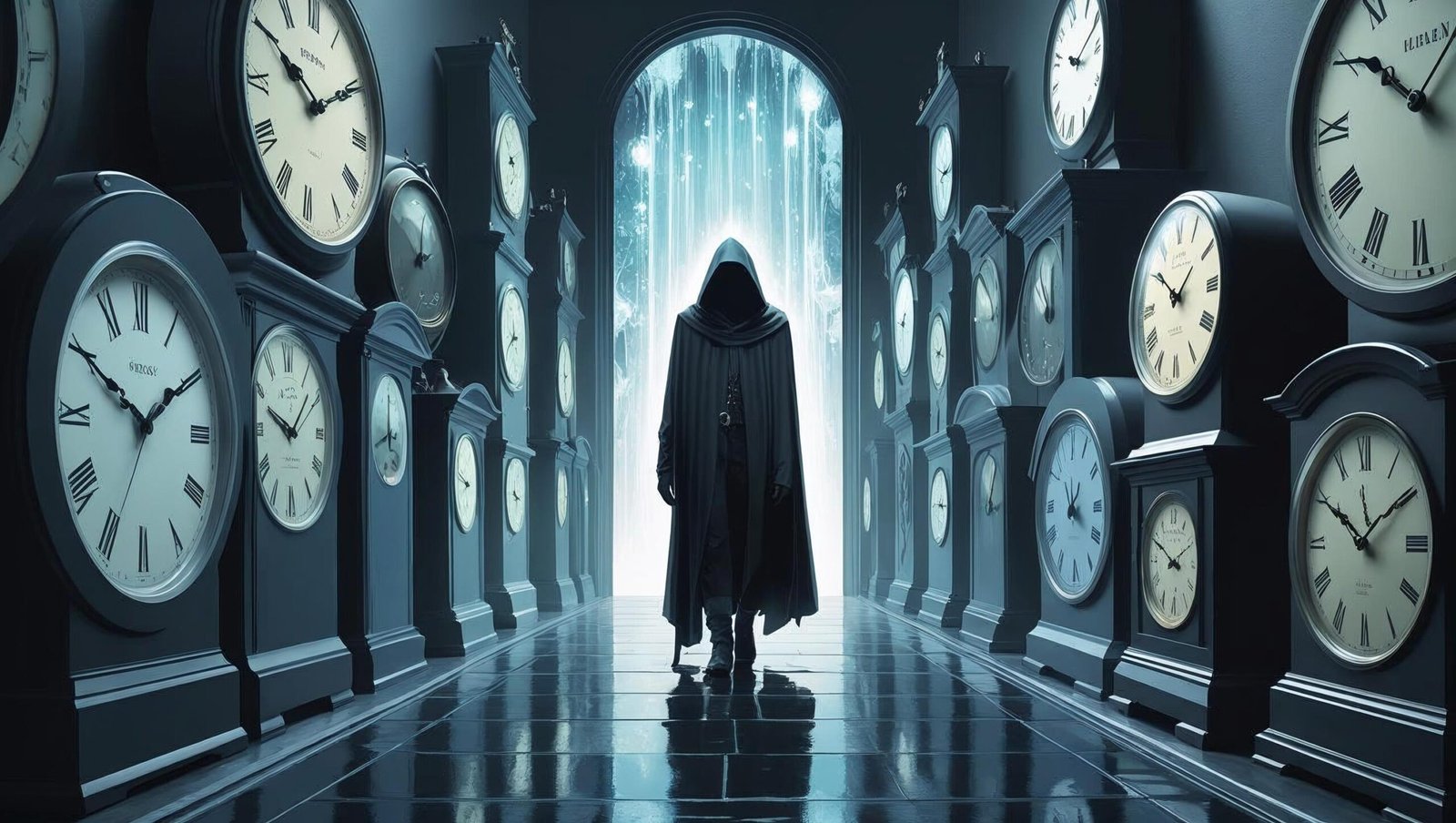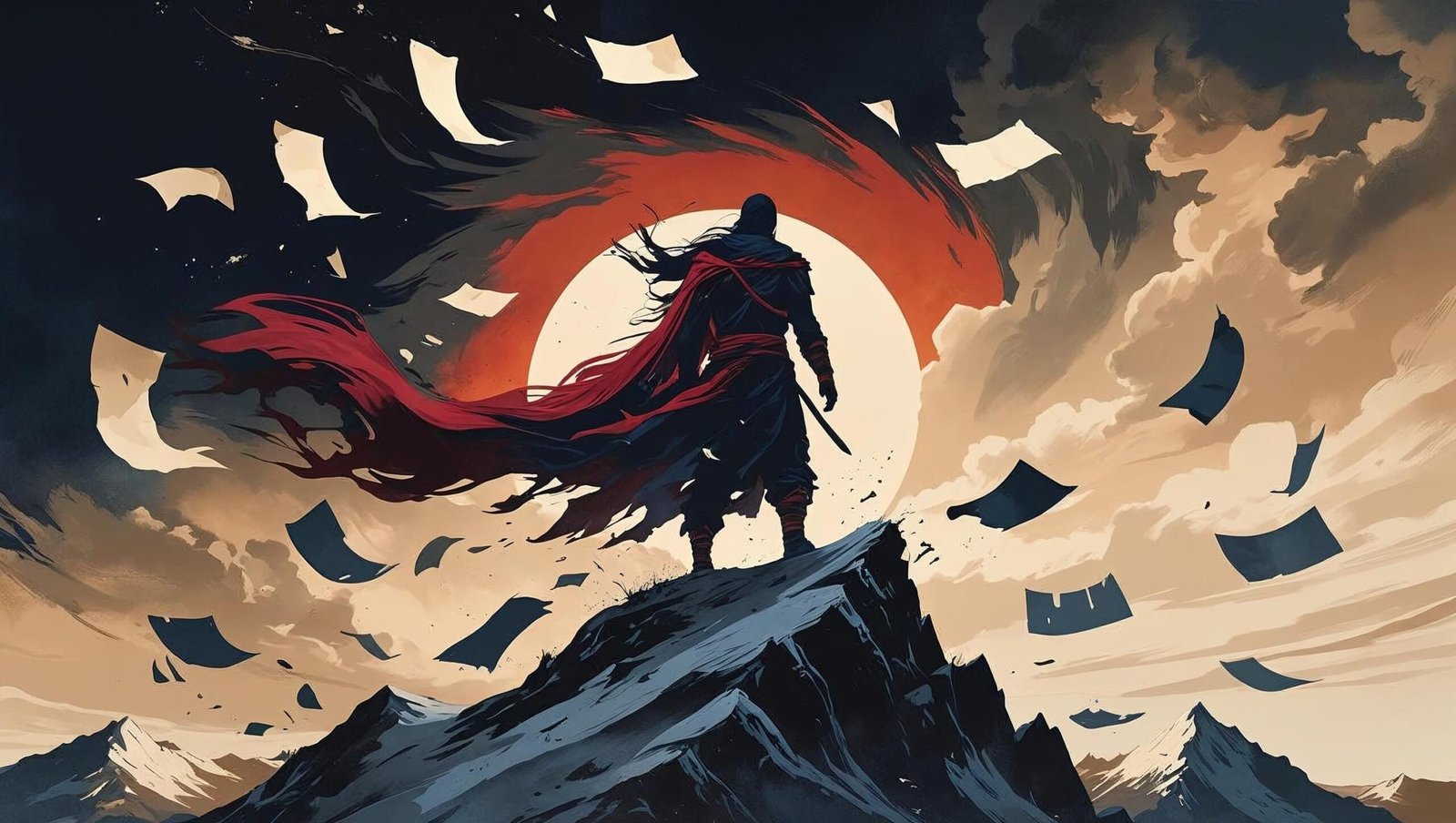Introduction
In an era of distraction, indecision, and mounting stress, time often feels like a ruthless master rather than a humble servant. Amidst this whirlwind, Time Warrior by Steve Chandler emerges as a powerful manifesto urging readers to reclaim their inner power, vanquish procrastination, and live consciously. This blog post undertakes a comprehensive chapter-wise review and interpretation of the book, seeking to bring clarity to Chandler’s radical philosophy.
About the Author
Steve Chandler is a transformational leadership coach, author of over 30 books, and a pioneer in personal growth and business development. His tone in Time Warrior is stern yet empowering, candid yet hopeful. Unlike the sugar-coated productivity guides, Time Warrior by Steve Chandler slashes through illusions with swordlike clarity.

1. The Time Warrior Mindset: Courage Over Calendar
One of the central ideas in Time Warrior by Steve Chandler is that courage, not time management, is the root of all productivity. Chandler asserts that people often hide behind planning and scheduling instead of simply taking action. Rather than treating the calendar as a battlefield, he encourages us to move into bold, decisive action now.
He insists that fear-based thinking is the real thief of time. By acting from fear, individuals delay tasks, overthink priorities, and drown in the illusion of “not enough time.” Courage, by contrast, propels us into clarity and execution.
2. Stop Living in the Future: Destroy the Phantom Time
Chandler is critical of the psychological torment caused by projecting one’s focus into the future. In Time Warrior by Steve Chandler, readers are urged to liberate themselves from the constant mental chatter of “what ifs” and instead concentrate on what is.
This does not mean neglecting planning altogether, but rather disengaging from compulsive overplanning. The future is painted as a phantom—unreal and unknowable—whereas action can only occur in the now. Hence, Time Warrior by Steve Chandler emphasizes presence over preparation.
3. Prioritization Through Purpose, Not Panic
We often prioritize based on urgency and panic. However, Time Warrior by Steve Chandler suggests a purpose-driven model. He articulates that meaningful work should precede urgent noise.
He distinguishes between doing what’s important versus reacting to what’s immediate. According to Chandler, a warrior makes decisions from commitment rather than fear, and this decision-making model fundamentally reshapes the way we interact with our time.
4. Kill Multitasking: Commit Fully to the Moment
In Time Warrior by Steve Chandler, multitasking is labeled as the enemy of fulfillment. Chandler challenges the glorification of busyness by asserting that true mastery arises from undivided attention.
By teaching us to say “no” to distractions, Chandler encourages readers to unplug, narrow their focus, and immerse themselves in the task at hand. This chapter is perhaps one of the most applicable in the digital age, where attention is fragmented by endless notifications.
5. Drop the Victim Narrative
A vital transformation encouraged in Time Warrior by Steve Chandler is the abandonment of the victim identity. He critiques how individuals often surrender their power by blaming circumstances, time scarcity, or other people.
Instead, Chandler invites the reader to embrace radical responsibility. The Time Warrior does not wait for ideal conditions or approval. He or she creates the circumstances through decisive engagement. This warrior archetype stands for self-authorship and unflinching clarity.

6. Create Energy, Don’t Manage Time
Time, Chandler argues, is not the limited resource we assume it to be. Energy, however, is. In Time Warrior by Steve Chandler, we are told that life transforms when we focus on cultivating energy instead of worrying about hours.
By engaging in energizing practices, surrounding ourselves with positive influences, and doing work aligned with our values, we become productive not through structure but through inspiration. Chandler’s perspective here aligns with much of modern neuroscience and energy management research.
7. Let Go of Being Liked
One of the more jarring but liberating lessons in Time Warrior by Steve Chandler is this: “You don’t have to be liked.” Chandler asserts that the need for approval is a primary cause of time-wasting and indecision.
When decisions are made based on the desire to be liked, people dilute their truth, procrastinate on uncomfortable conversations, and fail to lead. The Time Warrior sheds this fear and operates from authenticity, not appeasement.
Deep-Dive into the Warrior’s Psychology
To appreciate the transformation this book promises, one must understand the psychological armor the “Time Warrior” wears. Chandler’s concept is not just tactical—it is metaphysical. His war is not waged on clocks or commitments, but rather on mental noise, illusionary fears, and self-imposed paralysis. In a world obsessed with optimizing every tick of the clock, the Time Warrior enters the battlefield with a sharper sword: present-minded certainty.
This psychological approach is rare. Most self-help content flirts with superficial time hacks. Yet, what makes this book a cornerstone work is how it targets root causes—the chronic indecision, the addiction to perfection, the paralyzing fear of disapproval. Chandler’s warrior is not a machine of productivity. He is a master of clarity.
This deep psychological positioning makes Time Warrior by Steve Chandler less of a guidebook and more of a manifesto for mental freedom.
The Enemy Within: Procrastination as Self-Betrayal
Chandler’s voice is urgent when discussing procrastination. He doesn’t merely describe it as delay; he paints it as a form of self-abandonment. To procrastinate, in the Chandler lexicon, is to betray one’s higher self, to bow before the lesser emotions of fear, doubt, and unworthiness.
He challenges the reader to examine why they delay. Is it fear of imperfection? Fear of conflict? Fear of failure? All roads seem to lead back to egoic defense mechanisms that cripple decisive motion. Rather than offering gentle encouragement, Chandler confronts the reader: “What are you really avoiding?”
This confrontation evokes an unsettling truth—most procrastination is not circumstantial but philosophical. In other words, we don’t delay because we lack time, but because we lack alignment.

Decision-Making as a Weapon
In a world addicted to options, Chandler argues for the sacredness of swift decisions. He likens indecision to mental cholesterol—it clogs the arteries of action and creativity. Time Warrior by Steve Chandler devotes ample attention to this subject, reframing decision-making as an act of creative power, not a gamble of logic.
Every postponed choice, he warns, is a leak in the warrior’s hull. Chandler dismantles the romanticism of “keeping options open,” explaining that freedom actually flourishes through commitment.
In a particularly evocative passage, he writes:
“Not deciding is deciding—to remain stuck.”
This is perhaps the most cutting insight in the entire book. It reorients readers to view every moment as a crossroads. In this light, Chandler’s Time Warrior becomes a spiritual figure, a symbol of living deliberately.
Time, Ego, and the Illusion of Complexity
A recurring motif in the book is the interdependence of ego and perceived time scarcity. Chandler unpacks how the ego loves complexity. Why? Because complexity offers an excuse to not act. If something is “complicated,” then postponement feels justified. This is a seductive trap.
But the Time Warrior sees through it.
In Time Warrior by Steve Chandler, time is not scarce, tasks are not complex, and action is not negotiable. What remains is clarity through courage. Simplicity is not naïve—it is revolutionary. Chandler’s assertion that clarity comes from action, not analysis, upends decades of time-management dogma.
This notion unsettles readers who rely on intellectual comfort or overplanning. Yet therein lies the power of Chandler’s thesis: liberation lies in decisive simplification.
Counterpoints and Critiques
While Chandler’s brutal clarity can be refreshing, some readers may find it overly reductive. Critics argue that not every delay stems from fear; sometimes, it arises from introspection or strategic thinking. Life is not always as binary as action versus procrastination.
Moreover, Chandler’s emphasis on immediate action might not resonate with those in trauma recovery, chronic fatigue, or neurodivergent conditions, where slowness is survival. The universal application of his “do-it-now” mantra must be tempered with contextual wisdom.
Still, even critics concede that the spirit of Chandler’s message is broadly empowering, particularly for those shackled by the tyranny of overthinking.
Who Should Read This Book?
Time Warrior by Steve Chandler is not for those seeking hacks or shortcuts. It is for those willing to be confronted, challenged, and transformed. The ideal reader is:
-
An entrepreneur stuck in analysis paralysis
-
A creative mind plagued by perfectionism
-
A corporate leader avoiding difficult conversations
-
A student waiting for the “right time” to start
-
A recovering people-pleaser learning to say no
In other words, this book serves anyone willing to trade comfort for clarity and procrastination for purposeful motion.
What Makes Chandler’s Approach Unique?
Several elements distinguish Time Warrior by Steve Chandler from the ocean of self-help literature:
-
Blunt Precision: Chandler doesn’t sugar-coat. His tone is that of a coach, not a cheerleader.
-
Anti-Conventionality: He actively attacks popular productivity myths.
-
Focus on Fear: Most time books ignore emotional barriers. Chandler drills right into them.
-
Philosophical Leaning: The book is not just “how to” but “why not yet?”
-
Short Digestible Chapters: Each idea is compact, cutting, and memorable.
The combination of emotional depth and practical firepower makes this work enduring. It invites multiple re-readings, each time revealing new layers of self-awareness.

Implementation Framework: Becoming Your Own Time Warrior
To translate ideas into daily life, you may consider the following framework inspired by Chandler’s teachings:
W – Warrior Mindset:
Begin each day by identifying one fear-based delay and confronting it head-on.
A – Action Over Anxiety:
Replace “what should I do next?” with “what am I avoiding?” Then do it.
R – Radical Simplicity:
Kill complexity. Make your to-do list no more than three bold actions per day.
R – Reject External Approval:
Review your calendar and delete one meeting, call, or task scheduled only for people-pleasing reasons.
I – Inner Clarity Ritual:
Journal your primary purpose and realign actions accordingly.
O – Own Your Decisions:
Stop asking others for permission. If a decision is hard, it’s probably right.
R – Real-Time Focus:
Shut all tabs, devices, and notifications. Practice 60 minutes of monotasking.
This “WARRIOR” framework encapsulates the spirit of Time Warrior by Steve Chandler and makes it pragmatic for modern-day readers.
Personal Reflections: A Letter to the Modern Reader
Dear Reader,
You may be here because you’re overwhelmed, distracted, or creatively paralyzed. I’ve been there. We all have. That anxious loop of planning more, fearing failure, and never starting—it is exhausting.
When I first read Time Warrior by Steve Chandler, I didn’t feel inspired. I felt exposed. His words burned away my excuses. But in that discomfort, I found freedom. I stopped romanticizing time management and started confronting my own fears.
This book won’t hold your hand. But it will sharpen your sword. And if you’re ready to stop asking time for mercy and instead command it with purpose—then you are ready to become a Time Warrior.
The Emotional Cost of Waiting
Procrastination often masquerades as laziness, but in truth, it carries a profound emotional burden. Days drift by not because tasks are hard, but because they are charged with meaning, uncertainty, or discomfort. Inaction may seem passive, yet it is an active drain on self-trust and mental energy.
Over time, these delays compound—not just in undone work, but in diminished confidence. You begin to doubt your ability to follow through. The invisible toll? Quiet frustration, nagging guilt, and loss of self-respect.
Taking even the smallest bold step reclaims a part of your identity. It is not about productivity—it is about becoming someone who keeps promises to themselves. That is where true transformation begins.
Why Time Warrior by Steve Chandler Stands Apart
Most productivity books offer strategies—Time Warrior by Steve Chandler offers philosophy. His writing goes beyond the usual to-do lists and into the spiritual territory of personal liberation.
-
The tone is unfiltered, raw, and galvanizing.
-
The message is not about saving time, but becoming time.
-
The transformation is internal, not merely external.
Unlike the standard fare, Time Warrior by Steve Chandler compels readers to examine their belief systems, emotional attachments, and deeper fears. In doing so, it empowers a paradigm shift in the way we engage with life itself.
Practical Applications of Time Warrior by Steve Chandler
Here are some practical takeaways:
-
Morning Activation: Begin the day with one bold action—not a plan.
-
Eliminate Maybe: Make yes/no decisions. Kill ambivalence.
-
Fear Journal: Identify one thing you’re avoiding due to fear and take action.
-
Energy Log: Notice what energizes you vs. what drains you, then adjust.
-
No Devices Day: Try deep work without digital distractions.
-
Confrontation Practice: Have one conversation you’ve been putting off.
These exercises align with Chandler’s teachings in Time Warrior by Steve Chandler, driving home the theme of action over rumination.
Powerful Quotes from Time Warrior by Steve Chandler
“Procrastination is not laziness. It is fear.”
“You don’t need time management. You need courage.”
“Say no to the good so you can say yes to the best.”
“People think they need more time. What they really need is more truth.”
These maxims exemplify the uncompromising wisdom that runs throughout Time Warrior by Steve Chandler.

Frequently Asked Questions (FAQs)
1. What is the central message of Time Warrior by Steve Chandler?
The book encourages readers to overcome procrastination by adopting a courageous, present-focused mindset. Chandler believes action—not planning—resolves anxiety.
2. Is Time Warrior by Steve Chandler suitable for professionals?
Absolutely. Its lessons are applicable to leaders, entrepreneurs, creatives, and anyone feeling stuck in overwhelm or inertia.
3. How is this book different from other productivity books?
While most books focus on tactics, Time Warrior by Steve Chandler focuses on inner transformation, fear eradication, and living with purpose.
4. Is the language of the book easy to understand?
Yes, it’s accessible yet potent. Chandler’s tone is direct, motivational, and unpretentious.
5. Can I implement its teachings without a rigid schedule?
Yes. In fact, Chandler promotes freedom from rigid scheduling, emphasizing energy, boldness, and present engagement instead.
Conclusion
Time Warrior by Steve Chandler is not merely a book—it is a declaration of liberation. It strips away the noise, smashes procrastination, and calls forth your inner warrior to live on purpose, with purpose. If you have been waiting for the “perfect time,” Chandler’s voice will resound in your mind:
“There is no perfect time. There is only now.”
This review, grounded in the teachings of Time Warrior by Steve Chandler, serves as both a guide and a mirror. The time to act is now. The battlefield is your mind. The warrior is you.
For more such reflective book reviews and personal transformation insights, visit:
🌐 shubhanshuinsights.com
Comments
🔹 “A refreshingly honest breakdown! Chandler’s philosophy makes more sense now.”
🔹 “The call to courage over planning hit me hard. Will be re-reading this post!”
🔹 “I loved the clarity with which each lesson was explained. Book now added to cart.”
🔹 “Such a powerful post. The FAQs helped clear doubts I didn’t even know I had.”
🔹 “Bookmarking this for whenever I need a jolt of courage and focus.”